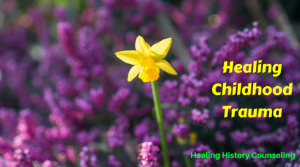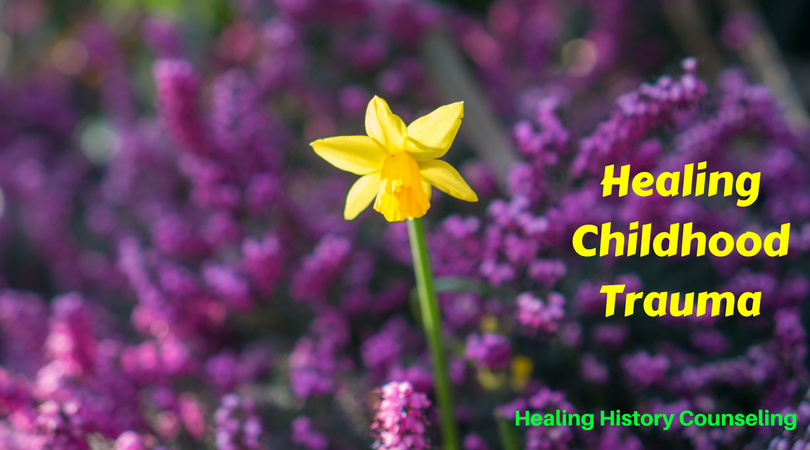

Many people know that April is Child Abuse Prevention and Sexual Assault Awareness Month. Fewer people know that April has dozens of designations. The two I will focus on are: National month of Hope and National Volunteer Month. I am doing this because it can be depressing when we are faced with the fact that 4 Children die from maltreatment each day in the USA. It can feel overwhelming when we contemplate that 1 in 5 women and 1 in 6 men are sexual assaulted during their lifetime.
My original plan for this blog was to share facts and statistics about how many children are abused and neglected in the united states. I was going to tell you about the risk of sexual assault that women, and men, face in this country. But as I collected together the data and started writing my blog, I got overwhelmed and really f*@#king sad. So, I put my blog aside and spent the day playing with my nephews. Coming back to my blog today, I’ve decided that I don’t want to just make people feel awful and powerless! I want to talk about hope and how to rekindle hope in our lives. I want to talk about what we can do to take action against child abuse and sexual assault. I am writing this blog about empowering ourselves, so we can feel capable of going out there and having a positive impact against child abuse and sexual assault.
Hope
Everyone needs hope. It’s what drags us out of bed, despite there being way too many reasons to stay hidden under the covers. Hope is as vital as air. But for people struggling with life it can be difficult to find hope. Here are some useful tools for finding or strengthening hope.
Finding/Strengthening Hope
- Look for the helpers: Do as Mr. Rogers advises – whenever tragedy strikes look for those people who are pitching in and helping out! Focus on them, they are hope personified.
- Choose your company: We tend to see the world the way everyone around us sees the world. When our friends are complainers and always focused on the negative, we tend to be that way too. The opposite is also true, if we surround ourselves with positive celebratory people who are noticing what’s going right and celebrating every win, we will tend to be that way too.
- Practice Gratitude: When we appreciate all that we have and all that is in the world around us, we shift our focus to a more positive perspective which encourages hope. Start each day listing things you are thankful for. Struggling to think of anything? Take a breath, be thankful for the air you breathe. Have a roof over your head? Be thankful. Get as simple and basic as you can.
- Let go of unrealistic hopes: Sometimes we rest our hopes on things that we know will never happen. “I wish my mom would apologize for failing to protect me”, when she has proven time and again that she will not is not helping you. Choose to let go of those unrealistic hopes. It may help to say aloud “I let go of the unrealistic hope that…”
- Challenge your learned helplessness: When we experience awful events that we are powerless to change we can learn not to bother to try. That is learned helplessness. We can overcome learned helplessness, but it takes repeated intentional effort. When we find ourselves giving up without trying – stop. Remind ourselves that this is our learned helplessness and that we are now capable of creating positive change in our lives. Finally, choose some way to act.
- Clarify vague goals: A goal without a clear path is like a beautiful castle beyond an impenetrable haunted forest, in other words – intimidating and discouraging. If you know where you want to end up, you’ve only done half the battle. The other half is figuring out what the steps are to get there. Each step needs to be spelled out. Try using the SMART goal model for each step. (SMART stands for: Specific, Measurable, Achievable, Relevant, Time limited)
- Be selfless: Do something for someone else (that you’re not paid to do). Give an honest compliment. Hold the door and accept the thank you. Volunteer somewhere – more on that in the next section.
Actions We Can Take
Now that we have developed a plan to strengthen our hope, what can we do to reduce child abuse and sexual assault? Here are eight actions you can take to help fight child abuse and sexual assault.
Actions for Change
- Know the facts and signs: Learning about child abuse and sexual violence. Share that knowledge. Correct mistaken beliefs held by others.
- Talk to your kids about consent and risk management: Have you got children of your own? Talk to them, in an age appropriate way, about how to reduce their risk and about giving and receiving consent for sexual behavior. (a great tool is this video on tea)
- Work on your own trauma history: Children who have at least 1 parent with their own history of childhood abuse are at higher risk of being victims of childhood abuse (Study data here). Unresolved trauma can get in the way of creating a safe environment or recognizing when their children are at risk. I believe that this risk can be minimized by facing and healing their own trauma history.
- Volunteer: Give your time to non-profit organizations that work to prevent or respond to childhood abuse or sexual violence. If you have the time, consider becoming a CASA volunteer. A Court Appointed Special Advocate works to make sure that the children’s best interests are advocated for in the court system.
- Report your suspicions: If you suspect that a child has been or is being abused or neglected report it to your states child abuse reporting line (in TX the # is 1-800-252-5400).
- Believe: If someone tells you about abuse or an assault, believe them. It is very rare that a victim of abuse or assault has made it up. Even if you know the accused offender, believe. Unfortunately abusers are often seemingly great people.
- Speak up against sexual violence humor or normalization: Unfortunately, some people find it funny to tell jokes about abuse or assault. Remaining silent when we hear such jokes is just like we have said we agree with the awful humor. Speak up. Say “I don’t find that funny.” A victim may be hearing that same joke and be feeling attacked or unsafe. Your simple disagreement may mean the world to them.
- Donate: No time? Do you become to upset when you are directly faced with the reality of child abuse or sexual violence? Non-profits that work to prevent or respond to child abuse or sexual violence are always strapped for cash. Give what you can.
All of April there will be many reminders about preventing child abuse and raising awareness of sexual violence. That is because April is the National month to prevent child abuse and sexual assault awareness. April is also the National Month of Hope and the National Volunteer Month. I hope this
You’re a true inspiration to fellow bloggers.